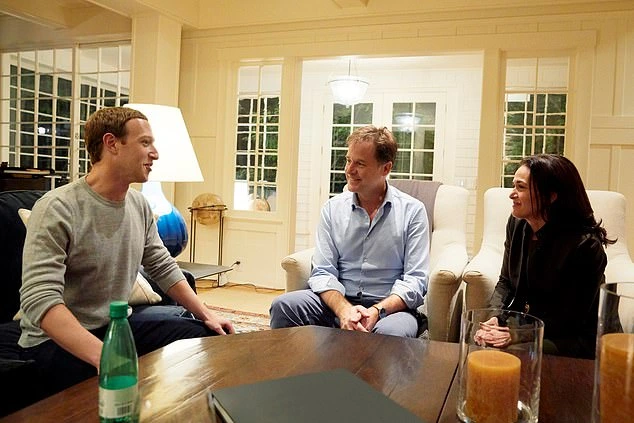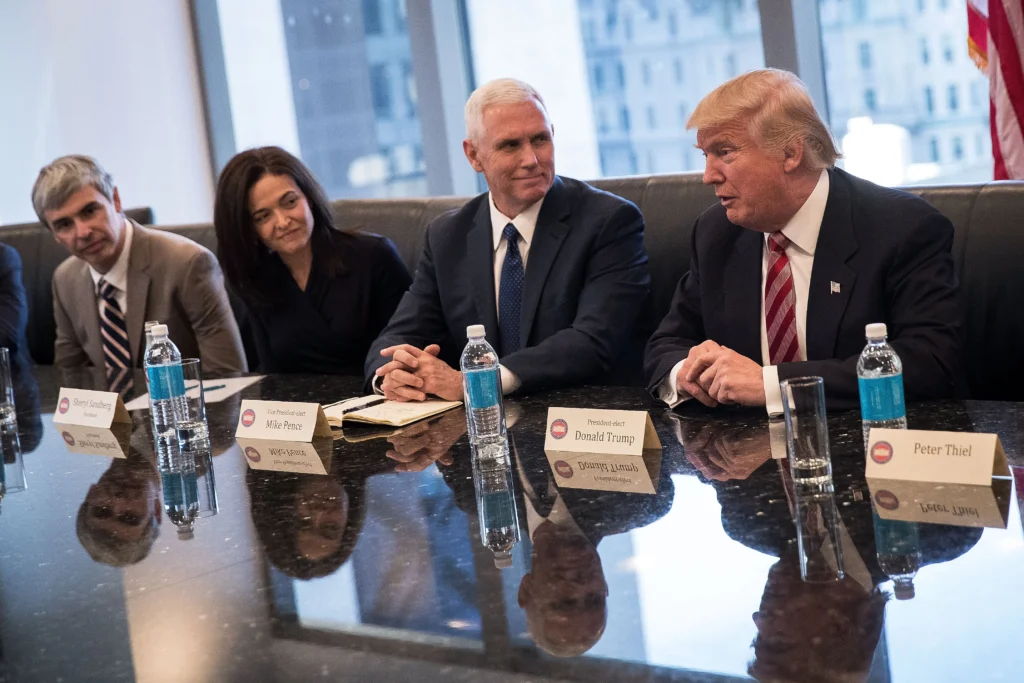Nick Clegg, former UK Deputy PM and Meta executive, criticizes Silicon Valley’s tech billionaires for their victim mentality and reveals behind-the-scenes insights in his book “How to Save the Internet”.
Table of Contents
Introduction
Silicon Valley, the global hub of tech innovation and billion-dollar startups, is often seen as the land of progress, creativity, and disruption. But according to Nick Clegg, the former UK Deputy Prime Minister and Meta’s ex-President of Global Affairs, it’s also a place where “wealthy men think they’re victims.”
In his new book, “How to Save the Internet,” Clegg offers a rare behind-the-scenes look at the inner workings of Meta, Mark Zuckerberg’s leadership, and the cultural bubble of Silicon Valley’s elite. He argues that the tech industry’s insular environment, obsession with uniformity, and growing alignment with political power—especially during the Trump era—have created a distorted view of reality.
This blog dives deep into Clegg’s revelations, his criticisms of the “herd-like behavior” dominating Silicon Valley, and what his experiences mean for tech, politics, and the future of the open internet.
Clegg’s Criticism: “Wealthy Men Who Think They’re Victims”
In the book, Clegg highlights a cultural paradox at the heart of Silicon Valley:
“Everyone wears the same clothes, drives the same cars, listens to the same podcasts, follows the same fads. It’s a place born of immense herd-like behavior.”
Despite controlling vast sums of wealth and wielding enormous influence, many tech billionaires—from Mark Zuckerberg to Jeff Bezos and Elon Musk—see themselves as outsiders under attack.
Why the Victim Mentality?
- Political Scrutiny → Increasing pressure from governments on data privacy, AI regulation, and antitrust issues.
- Cultural Backlash → Growing criticism over toxic work cultures and monopolistic practices.
- Trump-Era Dynamics → Silicon Valley leaders strategically aligned with Donald Trump to protect their business interests.
This sense of victimhood, Clegg argues, prevents tech leaders from acknowledging their missteps and building more accountable systems.
Mark Zuckerberg and Meta: Insights from the Inside

Clegg joined Meta (formerly Facebook) in 2018, navigating the company through several global controversies, including:
- Cambridge Analytica & Privacy Scandals
- Political Ads and Disinformation
- Facebook’s Role in the 2016 and 2020 US Elections
- The Rise of TikTok & Competition for Gen Z Attention
In his book, he describes Mark Zuckerberg as “thoughtful and endlessly curious”, but acknowledges that Zuckerberg’s insular leadership style reflects Silicon Valley’s wider groupthink problem.
“The Valley’s greatest weakness,” Clegg writes, “is its inability to recognize its own bubble.”
The “Herd-Like” Behavior of Silicon Valley
One of Clegg’s sharpest observations is about the conformity within the Valley:
- Same cars → Tesla dominates parking lots across Palo Alto and Menlo Park.
- Same podcasts & books → From productivity hacks to crypto investment tips, everyone follows the same cultural trends.
- Same lifestyle goals → A relentless pursuit of wealth, status, and influence.
This echo chamber has blinded Silicon Valley’s elite to the real-world consequences of their technologies—from social media addiction and privacy invasions to misinformation crises and political polarization.
Silicon Valley Meets Donald Trump

Clegg reveals that after 2016, tech billionaires increasingly sought proximity to Donald Trump, especially as regulatory pressures grew. Leaders from Meta, Amazon, Apple, and Tesla quietly courted political influence to secure policies favorable to their companies.
This shift reflected Silicon Valley’s growing political pragmatism:
- Avoid regulation,
- Protect profits,
- Maintain dominance.
But Clegg warns that this symbiotic relationship between tech and politics has fueled deeper mistrust among users, governments, and the public.
How to Save the Internet: Clegg’s Vision
Clegg’s book isn’t just a critique; it’s also a blueprint for improving the digital ecosystem. His key proposals include:
1. Rebuilding User Trust
Transparency around data usage, algorithmic decisions, and content moderation.
2. Breaking Down Big Tech Silos
Encouraging interoperability between platforms to reduce monopolistic power.
3. Responsible AI Development
Ensuring AI systems like Meta’s algorithms and tools are transparent, ethical, and explainable.
4. Global Digital Governance
Establishing international standards to regulate tech platforms, protect free speech, and fight disinformation.
Clegg on Politics, Brexit, and Personal Choices
Beyond Silicon Valley, Clegg also reflects on his political past and future ambitions:
- He disagreed with David Cameron on holding the Brexit referendum, believing the UK’s exit from the EU was a historic mistake.
- He predicts Britain will rejoin the EU within his lifetime and vows to return to the political scene if that debate reignites.
- While Clegg himself avoids frontline politics, his wife, Miriam González Durántez, is considering launching a new centrist party in Spain.
These personal insights add depth and nuance to the book, connecting tech, politics, and personal conviction.
Why This Matters: The Future of Tech & Society
Clegg’s revelations come at a pivotal moment:
- AI is reshaping industries.
- Social platforms face trust crises.
- Governments are demanding more accountability.
As tech giants like Meta, Apple, Amazon, and Tesla continue to dominate global markets, understanding their culture, decision-making, and power structures becomes critical.
Clegg’s book forces readers to ask:
- Who really controls the future of the internet?
- Can innovation and regulation coexist?
- Is Silicon Valley helping society—or breaking it?
FAQs
Q1: What is Nick Clegg’s book about?
How to Save the Internet offers a behind-the-scenes look at Meta, Silicon Valley culture, and the tech industry’s political influence.
Q2: Why does Clegg criticize Silicon Valley billionaires?
He argues they act like “victims” despite their wealth, power, and control, blaming external forces rather than acknowledging their own role in societal problems.
Q3: How does Mark Zuckerberg fit into this narrative?
Clegg praises Zuckerberg’s curiosity but says Meta’s leadership suffers from groupthink, often failing to adapt to public expectations.
Q4: What does Clegg propose to “save the internet”?
Transparency, better regulation, global digital governance, and ethical AI development.
Q5: Does the book touch on politics?
Yes. Clegg discusses Brexit, Trump, tech lobbying, and how political decisions shape the tech landscape.